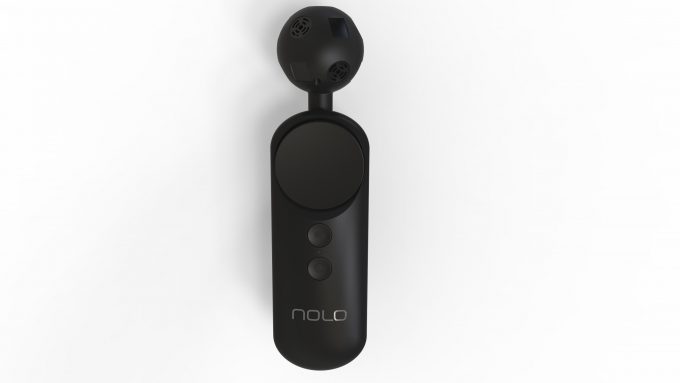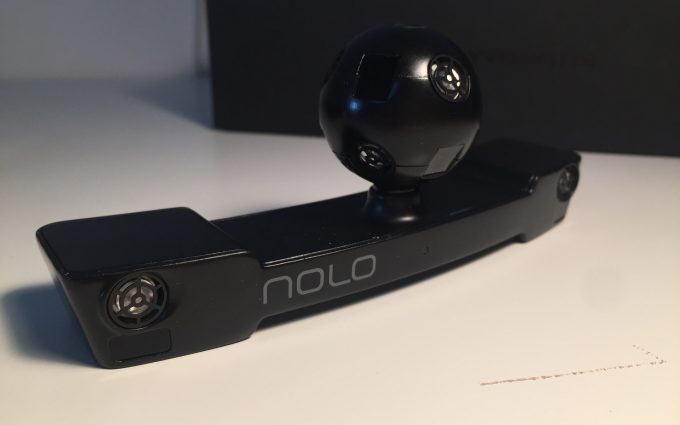NOLO VR is an intriguing Lighthouse-like positional tracking system designed to bring ‘room scale’ positional tracking and motion controls to mobile VR headsets. On top of that, the company is claiming SteamVR ‘compatibility’ through remote play via Riftcat’s VRidge software, all with an expected launch price of $99.
You can sense CES is just around the corner as new VR-focused hardware is emerging in the run up to the event. One of the more intriguing is Nolo, an add-on which promises to add both positional ‘room scale’ head and motion controllers to your Android powered virtual reality headset with latency quoted at less than 20ms.
Developers LYRobotix are behind the new system which comprises a headset ‘marker’, base station, two wireless, tracked motion controllers featuring with buttons, triggers and track-pads seemingly designed to emulate functionality found on the HTC Vive’s SteamVR controllers. Why would the company aim for that style of controller emulation? We’ll get to that shortly.


It’s a proprietary tracking technology by our company LYRobotix and we name it PolarTraq. Through fusion of optic, acoustic, and radio signals, millimeter level of accuracy and low latency can be achieved with high affordability, low power consumption and high portability.
Nolo feeds positional tracking information back into the mobile phone powering the experience (be that cardboard, GearVR or Daydream) but of course the application receiving that data needs to be built to support positional tracking in order to use it. Right now there are no mobile VR headsets with positional tracking and therefore no software built to utilise this. Therefore, the company is planning to ship an SDK to enable developers to integrate support for Nolo VR into their apps and games. The company has already formed a software partnership with KuDai Technology for their title The Table at War.
Since our time with the system however, and as part of its re-branding there’s now an interesting twist on how to apply its unique selling point to users. An angle Lyrobotix is exploring is that of a much cheaper entry-level VR headset for experiencing SteamVR compatible titles. Nolo will work in conjunction with Riftcat’s VRidge, a piece of bridging software designed to broadcast realtime VR experiences rendered on a gaming PC to your headset (and relay input back to it).
Of course this likely means a pretty significant compromise in quality, with image data compressed at source and sent over wireless networking to the headset (not to mention return input data via the same path). Considering you’ll also need access to a VR-grade gaming PC in order to run the experiences, I’m not sure the savings made possible by this solution (you’ll still have to own a suitable mobile phone and headset after all) will be worth the compromise.
Nevertheless, LYRobotix’s fusion of onboard IMU data, Lighthouse-like tracking with a single base station) in conjunction with the ultrasonic system is a neat one we’re looking to see more of. Luckily the system will be on show at next week’s CES where we’ll endeavour to take another look at the latest prototype.
The company Says Nolo VR will be priced at $99 and is currently offering a small discount for early-bird orders by signing up at their site.
Road to VR will be at CES 2017 for the duration of the show to bring you the latest VR events from Las Vegas as they happen. If you’re at CES and have something VR related to show us, ping us on tips@roadtovr.com.


